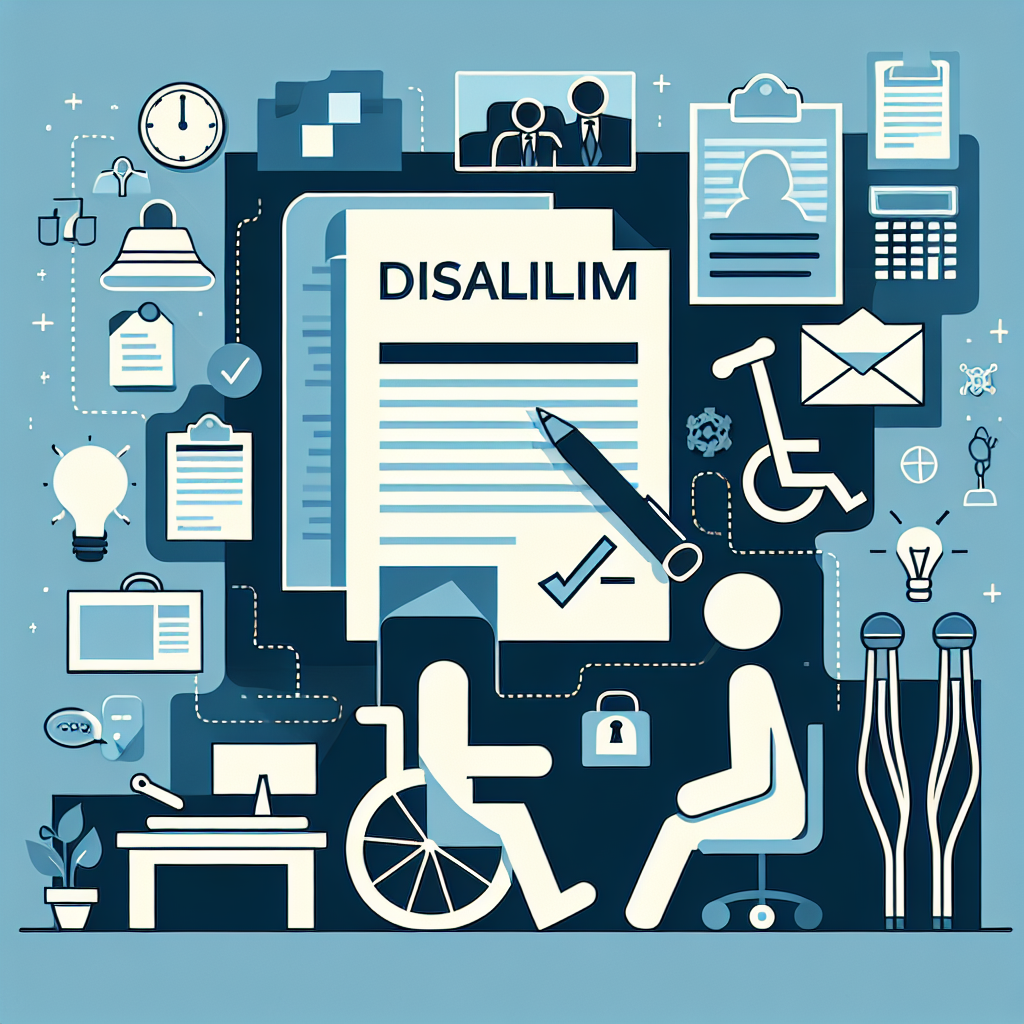Filed under Disability Insurance on
Notice to Employer: DE 2503 Disability Claim Filed

The landscape of employee compensation and disability benefits is nuanced, requiring careful navigation by employers to ensure compliance and support for their workforce. If you are an employer, you may encounter various forms and notices, one of which is the DE 2503 Disability Claim Filed Notice. Understanding this notice and its implications is crucial to managing disability claims effectively.
Understanding the DE 2503 Notice: What Employers Need to Know
In the United States, disability benefits are often handled at the state level, allowing employees who are unable to work due to non-work-related illnesses or injuries to receive financial assistance. One important form that employers may encounter is the DE 2503 Disability Claim Filed Notice. Issued by the Employment Development Department (EDD) in states like California, this notice serves as a formal notification to employers that an employee has filed a disability claim.
Purpose and Significance
The DE 2503 serves a dual purpose. First, it informs employers that an employee is seeking disability benefits, which necessitates accurate record-keeping and a clear understanding of responsibilities. Secondly, it allows employers to provide verification and additional information, which can impact the benefits the employee may receive. Mismanaged or ignored DE 2503 notices can lead to complications or even legal repercussions.
How to Handle a DE 2503 Notice
Timely Recognition and Response
Upon receiving a DE 2503 Disability Claim Filed Notice, prompt action is paramount. States typically set specific deadlines for employers to respond to disability claims, making it essential to act swiftly. Failure to submit a timely response can result in a default determination in favor of the employee.
- Verify Accuracy: Ensure all details related to the employee and their claim are correct to avoid processing delays or disputes. Double-check employee information, such as their Social Security number, employment details, and period of claimed disability.
- Provide Necessary Information: Complete the employer portion of the form with accurate salary benefits, last working day, and any other relevant information.
- Submit within Deadlines: Return completed forms within the timelines specified by the EDD to avoid any issues.
Impact on the Workplace
Disability claims can substantially impact a workplace by affecting every team member. Managers must rearrange tasks to manage the workload, which might require adjusting project timelines or delegating duties to other employees. Clear communication about the interim staffing plan is key to maintaining operational efficiency.
Legal and Compliance Aspects
Staying Compliant
Employers must adhere to applicable laws and regulations regarding disability claims. These can include federal statutes like the Americans with Disabilities Act (ADA) and state-specific guidelines. It's crucial for HR departments to stay informed about such regulations to maintain compliance and avoid penalties.
Employee Privacy
Handling disability claims involves sensitive personal information. Therefore, maintaining confidentiality is not only respectful but legally required. Ensure such information remains within a need-to-know boundary and implement stringent data protection measures to prevent unauthorized access.
Communicating with Employees
Compassionate Interaction
When an employee submits a DE 2503 Disability Claim, effective communication plays a pivotal role in how you manage the situation. Approach these conversations with empathy and clarity, ensuring the employee feels supported during their difficult time.
Providing Support
Beyond processing the notice, consider offering additional support to facilitate the employee's recovery and return to work. This could include providing information on any applicable Employee Assistance Programs (EAPs), counseling services, or resources for disability accommodations.
- Regular Updates: Keep the communication lines open regarding the status of their claim and any relevant company policies.
- Resource Guidance: Assist employees in understanding the benefits and support available to them during their disability leave.
Financial Considerations
Budgeting for Disability Claims
Disability claims can have financial repercussions for a company, especially in smaller businesses. It's essential to plan and budget for potential claims, which may include temporary staffing arrangements or overtime pay for other employees taking on additional duties.
Consider setting up a reserve fund specifically for unforeseen disability claims to manage the financial impact without disrupting ongoing business operations.
Navigating the Return-to-Work Process
Smoothing the Transition
When an employee is ready to return to work, the transition back should be seamless and supportive. Equip your workplace with policies and practices that aid in the return-to-work process by:
- Modified Duties: Offer modified work duties if the employee's full capacity is yet to be restored.
- Gradual Reintegration: Implement a phased return-to-work schedule where feasible.
- Regular Check-Ins: Maintain consistent follow-ups to monitor the employee's adaptation and address any concerns promptly.
Utilizing Technology and Resources
Leveraging Tools for Efficiency
Modern technology can streamline the management of disability claims, from automated reminders for form submissions to secure databases for maintaining employee records. Utilize HR software solutions that offer dedicated modules for leave and disability management.
Additionally, regularly consult with legal experts or labor consultants to ensure your company's policies align with the latest industry and regulatory standards.
Conclusion: Establishing a Proactive Approach
Managing DE 2503 Disability Claim Filed Notices effectively requires a blend of timely actions, legal awareness, compassionate communication, and strategic planning. By understanding the notice's importance and implementing best practices, employers can not only ensure compliance but also provide holistic support to their workers during times of need. Cultivating such an informed and supportive environment enhances workplace morale and ultimately contributes to a more resilient and cohesive organizational culture.
Remember, a proactive and empathetic approach is beneficial for both the employer and the employee, paving the way for successful disability claims management and a stronger workforce.





